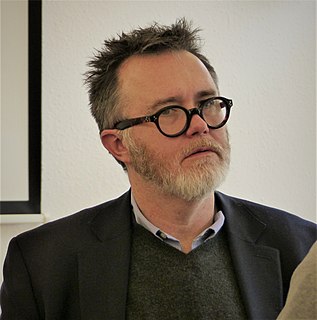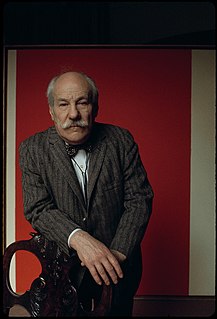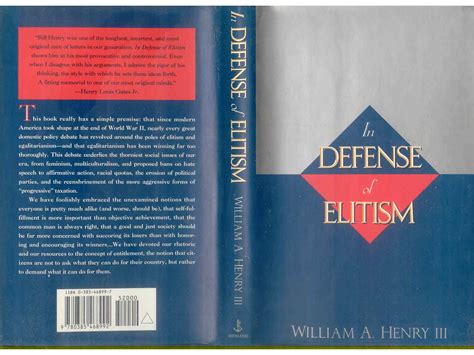A Quote by Rod Dreher
If you believe that man is inherently flawed-what religious people call 'original sin'-it follows that man, if left to his own devices, will tend towards ego-driven disharmony. Traditionalist conservatives know that absent the restraining hand of religion, tradition, or the state, there is nothing to prevent human beings from acting in ways contrary to their own best interests, or those of the community.
Quote Topics
Absent
Acting
Beings
Believe
Best
Best Interests
Call
Community
Conservatives
Contrary
Devices
Disharmony
Driven
Ego
Flawed
Follows
Hand
His
Human
Human Being
Human Beings
If You Believe
Inherently
Interests
Know
Left
Man
Nothing
Original
Original Sin
Own
People
Prevent
Religion
Religious
Religious People
Restraining
Sin
State
Tend
Those
Towards
Tradition
Ways
Will
Related Quotes
The uniting of Orthodoxy with state absolutism came about on the soil of a non-belief in the Divineness of the earth, in the earthly future of mankind; Orthodoxy gave away the earth into the hands of the state because of its own non-belief in man and mankind, because of its nihilistic attitude towards the world. Orthodoxy does not believe in the religious ordering of human life upon the earth, and it compensates for its own hopeless pessimism by a call for the forceful ordering of it by state authority.
Man loves his own ruin. The cup is so sweet that though he knows it will poison him, yet he must drink it. And the harlot is so fair, that though he understands that her ways lead down to hell, yet like a bullock he follows to the slaughter till the dart goes through his liver. Man is fascinated and bewitched by sin.
If you can impress any man with an absorbing conviction of the supreme importance of some moral or religious doctrine; if you can make him believe that those who reject that doctrine are doomed to eternal perdition; if you then give that man power, and by means of his ignorance blind him to the ulterior consequences of his own act,-he will infallibly persecute those who deny his doctrine.
In the future it's very possible you could have an artificial intelligence system that can run the country better than a human being. Because human beings are naturally selfish. Human beings are naturally after their own interests. We are geared towards pursuing our own desires, but oftentimes, those desires have contrasts to the benefit of society, at large, or against the benefit of the greater good. Whereas, if you have a machine, you will be able to program that machine to, hopefully, benefit the greatest good, and really go after that.
There are no conservatives in the United States. The United States does not have a conservative tradition. The people who call themselves conservatives, like the Heritage Foundation or Gingrich, are believers in -- are radical statists. They believe in a powerful state, but a welfare state for the rich.
It is a commonplace observation that liberals believe in the perfectibility of man while conservatives believe in the endurance of original sin. Superficially, that would suggest that conservatives take a more understanding and indulgent view of individual lapses, while liberals take a more harshly judgmental one. In fact, we know, quite the opposite is the case.
My call for a spiritual revolution is not a call for a religious revolution. Nor is it a reference to a way of life that is somehow otherworldly, still less to something magical or mysterious. Rather it is a call for a radical reorientation away from our habitual preoccupation with self. It is a call to turn toward the wider community of beings with whom we are connected, and for conduct which recognizes others' interests alongside our own.
This state of mind, which subordinates the interests of the ego to the conservation of the community, is really the first premise for every truly human culture... The basic attitude from which such activity arises, we call-to distinguish it from egoism and selfishness-idealism. By this we understand only the individual's capacity to make sacrifices for the community, for his fellow men.
One the one hand, our economists treat human beings as rational actors making choices to maximize their own economic benefit. On the other hand, the same companies that hire those economists also pay for advertising campaigns that use the raw materials of myth and magic to encourage people to act against their own best interests, whether it's a matter of buying overpriced fizzy sugar water or the much more serious matter of continuing to support the unthinking pursuit of business as usual in the teeth of approaching disaster.
The people who are abroad are all those that have no religion, neither one based on speculation nor one received by tradition. Such are the extreme Turks that wander about in the north, the Kushites who live in the south, and those in our country who are like these. I consider these as irrational beings, and not as human beings; they are below mankind, but above monkeys, since they have the form and shape of man, and a mental faculty above that of the monkey.
Only a great man, believe me, and one whose excellence rises far above human failings, will not allow anything to be stolen from his own span of time, and his life is very long precisely because he has devoted to himself entirely any time that became available. None of it lay uncultivated and idle, none was under another man's control, for guarding it most jealously, he found nothing worth exchanging for his own precious time.






































